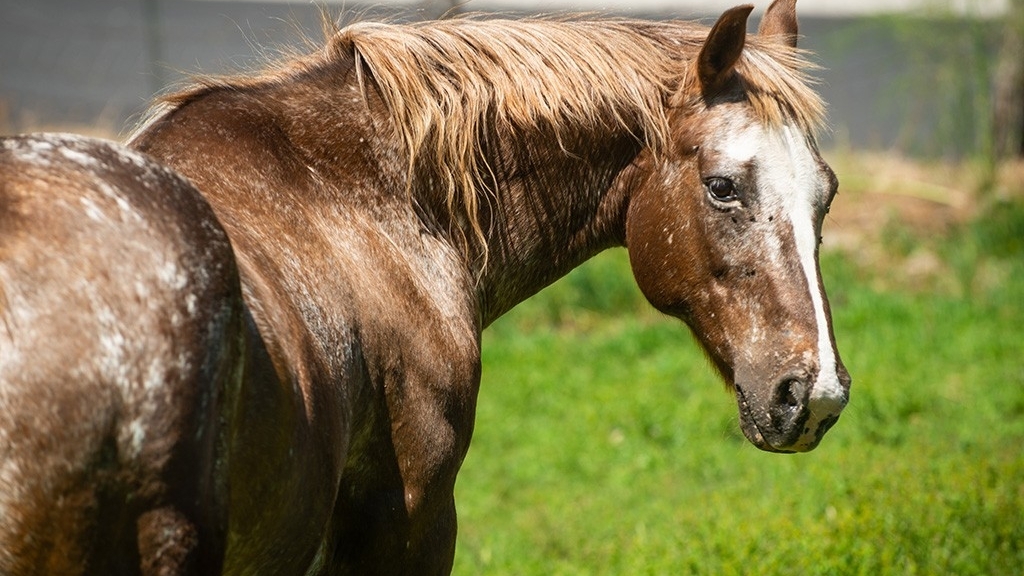African Horse Sickness

African horse sickness (AHS) is a disease of equids (horses, mules, donkeys, and zebras). It is spread by biting insects, primarily the biting midge, or via blood-contaminated equipment, such as needles. AHS does not affect human health. It is a foreign animal disease that has never been detected in the United States. Any cases of AHS must be reported to State and Federal officials.
AHS is found in tropical and sub-tropical regions of Africa. It has also been detected in the Near and Middle East, the Iberian Peninsula, Morocco, Pakistan, and India. In 2020, it was found for the first time in Southeast Asia in Thailand and Malaysia.
Although AHS has never been detected in this country, the United States does have species of insects that could transmit AHS among horses and other equids.
There are four clinical forms of AHS. The severity of signs depends on the species of equid infected (horse, mule, zebra, or donkey) and the form of disease.
- Pulmonary AHS—The pulmonary form of AHS begins with fever and progresses within a few days to respiratory failure and death in about 95 percent of affected horses. Signs include:
- Depression
- Profuse sweating
- Labored breathing
- Pulmonary edema (fluid in the lungs)
- Severe coughing
- Frothy nasal discharge
- Cardiac AHS—This form of AHS can lead to death within 4 to 8 days in about half of all cases. Signs include:
- Mild fever
- Swelling of the face, head, neck, and chest caused by excess fluid in the tissues (edema)
- Depression
- Colic
- Mixed AHS—The mixed form of AHS includes clinical signs of both the pulmonary and cardiac forms. The fatality rate is around 70 percent, with death occurring usually within 3–6 days. The disease starts with mild respiratory signs followed by:
- Edema
- Cardiac failure
- AHS Fever—This is the mildest of all forms of AHS and is rarely fatal. Donkeys, zebras, and vaccinated horses are more likely develop this form of the disease. Signs include:
- Low-grade undulating fevers
- Lethargy
- Shortness of breath
AHS is not contagious, meaning that is not transmitted through direct contact among equids. Instead, biting midges primarily spread the disease from infected to healthy animals. Mosquitoes, some biting flies, and ticks might also transmit the virus from one animal to another. The disease can also spread via the use of blood-contaminated needles and syringes.
If AHS is found here, horse owners should:
- Put in place insect control measures, including eliminating midge breeding sites (moist soil, manure piles, standing water).
- Stable horses and other equids from dusk to dawn, preferably in insect-proof housing.
- Never re-use needles among equids.
- Disinfect potentially contaminated surfaces using heat above 140 degrees Fahrenheit or disinfectants with a pH less than 6 or greater than 11.
Treatment for animals with AHS includes rest and supportive care to alleviate clinical signs.
Report Signs of Animal Disease
Producers or owners who suspect an animal disease should contact their veterinarian to evaluate the animal or herd. Find an accredited veterinarian.
Animal health professionals (veterinarians; diagnostic laboratories; public health, zoo, or wildlife personnel; and others) report diagnosed or suspected cases of nationally listed reportable animal diseases to APHIS Area Veterinarians in Charge and to the State animal health official as applicable under State reporting regulations.
Controlling African Horse Sickness
The greatest risk for AHS to enter the United States is from carrier equids (zebra, donkeys) or equids with partial immunity, including vaccinated equids, imported from AHS-affected countries. These animals can serve as a source of virus, which midges can then pass to healthy animals. The disease could also enter the United States through:
- Animal products such as equine serum, semen, and equine-origin biological products imported from AHS-affected countries.
- Infected midges and other insect carriers that stowaway on airplanes or ships.
- Infected midges and other insect carriers carried on the wind from AHS-affected areas.
APHIS regulates live animal and animal product imports to mitigate the risk of the introduction of AHS.
If AHS is found in the United States, it will initiate a foreign animal disease response by regulatory animal health officials. The response may include:
- Delineating areas of infection and establishing quarantine zones.
- Restricting equid movements within, into, and out of infected areas.
- Potentially euthanizing infected horses with severe clinical signs that are unlikely to recover.
- Implementing quarantine measures to separate infected horses from healthy horses to prevent virus spread.
- Requiring all equids in affected areas to be housed from dusk to dawn.
- Implementing measures to control disease vectors, like mosquitos, biting insects, and ticks.
- Monitoring all equids daily for signs of the disease.
- Using an APHIS-authorized vaccine to protect susceptible horses within a quarantined area.
- Information Sheet: African Horse Sickness (181.62 KB) (May 2021)

